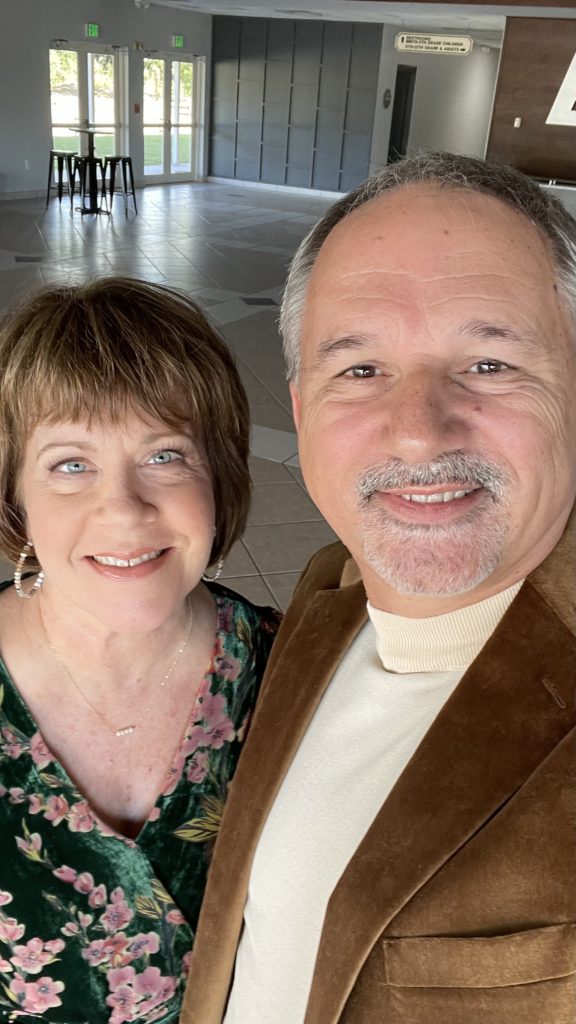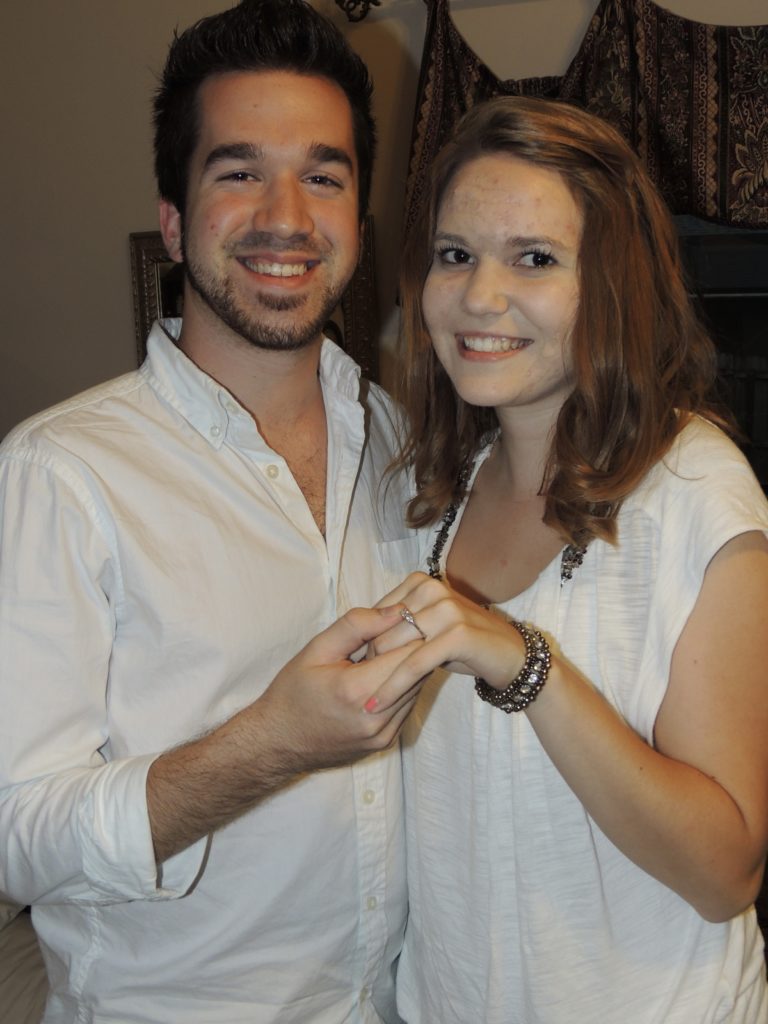The title of this post is funny, since we haven’t discussed Giveaway 1 yet. I’ll save that for another day, though it’s no less important — in any way — than this one. It’s just that this one is fresher in my head, and I’m more likely to remember it well.
It began a few years ago, when Sawyer and Vincent became friends. Then they began to want to be more than friends. Trudi and I could see it coming. Then — as I told about 200-250 people last Saturday — Vincent came to ask if he and Sawyer could “go out.”
“First,” I told him, “Sawyer is an adult and doesn’t need my permission.” Of course, while technically true, it wasn’t practically true, although he didn’t really know that. It was obvious he was *not* enjoying the conversation, and would much rather have been talking to practically anyone else on the planet. “So, why did you come and ask me if you could go out?”
“Because I told my friends I wanted to ask Sawyer out and they said I better come ask you first.” Accurate.
This awkward conversation led to Sawyer inviting Vincent over for dinner on the following Monday night, and every Monday night thereafter for the last few years. They eventually *did* get to “go out” once or twice.
Leading to Giveaway 2. The wedding this past Saturday of Sawyer Layne McDaniel and Vincent Robert Miller. I got to play the part of Father of the Bride, walking my youngest daughter down the aisle to “give her away”, as the tradition goes, and also the part of Officiant, presiding over the wedding ceremony.
Many pieces of the ceremony were similar to the ceremony in Giveaway 1. It was held outside, during autumn, at “the Bridge” — a portion of our church property where there are some trees, an open flat place, and a picturesque bridge over a nearby creek.
The engagement lasted over 14 months and had been full of preparation for this day. In fact, part of our 35th anniversary vacation to the mountains had been spent in thrift stores, looking for the perfect amber glass and other items which would eventually become part of the celebration. (Perhaps one day I’ll do a post about that trip.)
Our home became a storehouse for glassware, pieces of furniture, vegetation, rugs, and who-knows-what-all that appeared both at the outside ceremony venue and the inside reception venue (our church auditorium/gym).
Thursday was moving day, as we began the process of transferring the accumulated wedding ware to the church. We also had to bring in round tables to the auditorium (which had been cleared of the 280 chairs the previous evening) along with assorted tables. The movement of many heavy objects (rugs, tables, chairs, cornhole boards, boxes of glassware and silver platters, and pieces of oak tree stumps to be used in decoration) was, in a word, tiring.
Friday was more decorating and setup. I spent a great deal of time trying to figure out the setup for the outside venue. In the end, I overthought what was a very simple matter of staking out the center aisle, then marking where each row would begin.

At 5pm Friday the bridal party, along with parents and musicians, gathered for the rehearsal. Notably absent was my dad, who would begin the ceremony the next day. We had decided he would not be needed for the rehearsal in order to save the expense of a night in a hotel. (Our house was full. Along with Sawyer, Shae was home for the wedding, and one of Sawyer’s bridesmaids, Erica, was spending the night on a cot in the recently de-weddinged front room.) If this were the Amazing Race, this is the point where you would hear the weird jangly music that signals a racer may have made a poor choice.
The rehearsal, 86º heat, was brief. (Cue more jangly music) Then we went inside for the delicious rehearsal dinner, provided by Mark and Stacey, parents of the groom. Catered from Moe’s and Olive Garden, it was a feast!
When the dinner was over, Vincent and Sawyer distributed gifts to everyone, including parents. Sawyer wrote two notes to me, along with a Twix bar and an engraved Apple watch band.
After dinner we returned home, where I took one final shot at finishing my ceremony script. I had been contemplating it for months, since the time they decided they wanted me to do it.
Actually, I had thought about it since the moment they were engaged, but they had been unsure for a long time whether or not they wanted me to be the Officiant or just to be the Father of the Bride.
However, it was only in the last couple of weeks that I tried to put everything down on paper. There were many rewrites, the last of which took place that evening. I sent one final copy of dad’s part of the ceremony to him via email. Later, we would talk on the phone, so I could explain what I sent to him. Jangly music.
Wedding Day began early. I left the house before 6 to run to Dunkin Donuts for a dozen, then to Walmart to purchase coffee to brew. Then it was back to the house to pick up the girls and take them to the church’s music room, where they would spend the rest of the day getting ready.
I made coffee, set up the bridesmaids with donuts, juice, bagels, and water, then left to print out my notes.
Once back home, I relaxed and spent time going over my notes.
About 11 it was time to set everyone up for lunch. Trudi had made subs and chicken pasta salad, which needed to be transported to the church. Once that was done, it was time for me to go home, shower, and get dressed for a wedding.
At about 1pm Trudi and I went to the church for our session with the photographer. This would be the Parents’ First Look at the Bride in her wedding dress. Mom and Dad were there when we arrived. Their Grandparents’ First Look was just before our session.
Of course, when it was our turn, we were delighted to see the young woman who used to be our little girl — and still is — in her bridal finery. As always, her smile was the most beautiful piece of her regalia.
Afterwards, we went back home. Dad and I discussed the ceremony (I know the jangly music is getting old, but, it’s what happened) and then I told them both about how the ceremony was going to end and how I was going to lead everyone there.
Trudi and I returned to the church for the final time for photos with the bridal party. After that, I had to turn on the video wall for the reception, then setup a camera outside to capture video of the ceremony. [SPOILER: the camera failed.]
It was hot. I’m guessing about 86º once again, but with a very slight breeze and the random cloud. The area had been largely defoliated a month early by Hurricane Ian (THAT has to be a post at some point), but there was still just a touch of shadow on the bride’s side of the aisle.
Both inside and outside venues looked lovely. I took one last look at the outside, then scampered inside at about ten minutes before four. I had one additional job for Wedding Day: chauffeur.
The plan was this: the groomsmen and groom would transport themselves to the other side of the bridge, except for Sammy, who would be ready to escort Trudi down the aisle; the grandparents and parents, along with the ring bearer, would be picked up by two vehicles at the front of the church and driven out to the venue; the bridesmaids would be waiting at the rear of the church, where I would pick up the first three, then four others, along with the flower girl, would be picked up by the first two vehicles; the drivers of those vehicles would have time to park while I went back and retrieved the Maid of Honor and the Bride.
Once everyone was in place, the grandparents would go down the aisle and find their seat, followed by the parents. Instead of sitting, though, Dad was to continue to the front, where he would begin the ceremony. When Trudi was seated, Dad was to introduce himself, welcome everyone, and remind them to silence their phones. The processional would then officially begin.
That was the plan.
The first hint that things might slightly go off the rails came when I saw the ring bearer being hustled to the rear of the church, towards the bridesmaids. Happily, we were able to correct that and put him back where he belonged.
I went to my car and got it started so it would cool down, then went inside to fetch some bridesmaids. I had Lillie, Erica, and Natalie, who got in and we started to the front. When we got to the front doors, the parents and grandparents cars weren’t quite ready, so we waited for them to load up and leave. It was somewhere between the back and the front that Lillie remembered that she hadn’t changed into her wedding shoes. Oh boy.
Everyone was deposited at the venue entrance and all three vehicles went back for their second group. When Bekah, maid of honor, and Sawyer came out, I quickly told them that Lillie needed her shoes, which were *somewhere* in their prep room. Bekah ran back and and brought out two pairs of shoes, while the lovely Bride got in the car.
As I came around the front of the church, I could see the grandparents already entering the aisle! A little early. At the same time, my nephew was texting me. He couldn’t get the camera to turn on. Meanwhile, Lillie is trying to get her shoes changed, and I’m trying to put the car in the right position.
And then there was silence.
As I peeked into the venue, past the row of greenery which was serving as a wall, I could see Dad standing at the front, with the groomsmen right behind him. Well, they weren’t supposed to be behind him until after he finished talking about cell phones. But he wasn’t talking about cell phones or anything else for that matter.
Then the processional music began. Tammy Cruse, who had worked like a dog to coordinate the rehearsal, wedding, and reception, had been trying to signal Dad to start talking, but he didn’t.
I began gesturing for Dad to start, so he did. But then, he didn’t stop. So I began gesturing *very* wildly for him to stop.
It got better from there. Dad stopped, making a joke that he was told to start, then he was told to stop, so he guessed he would wait until everyone came in to do any more.
And I walked my baby girl down the aisle.
She’s with V on their honeymoon to San Francisco right now.
Mr. and Mrs. Zion.
Yep, that’s how the wedding ended, with a bit of a mic drop as I introduced them to the crowd, not as Mr. and Mrs. Miller — as most expected — or as Mr. and Mrs. McDaniel — as my other son-in-law guessed, or even as Mr. and Mrs. McMiller or some other tortured combination of names was suggested.
They can explain it on their blog — if they ever have one — but I’m proud of them for the choice they made.
Anyway, that’s most of what I remember about Giveaway 2. There were a lot of people, and the reception was grand. Then there was a lot of cleanup and I’ve spent the last few days trying to recover.
And if there are any single, Jesus-loving, secure-and-humble young men in their 30’s who wouldn’t mind living in New York, look me up. You could be part of Giveaway 3. 😁









